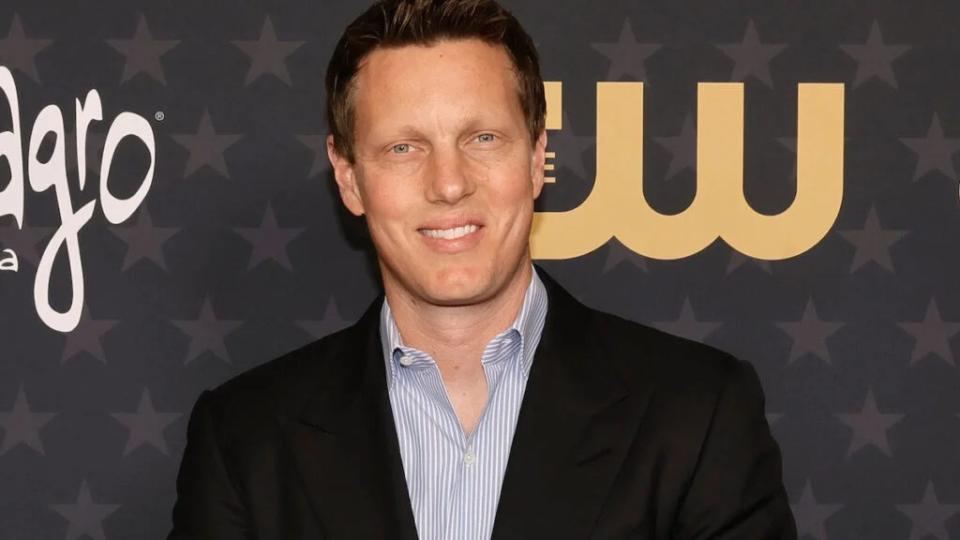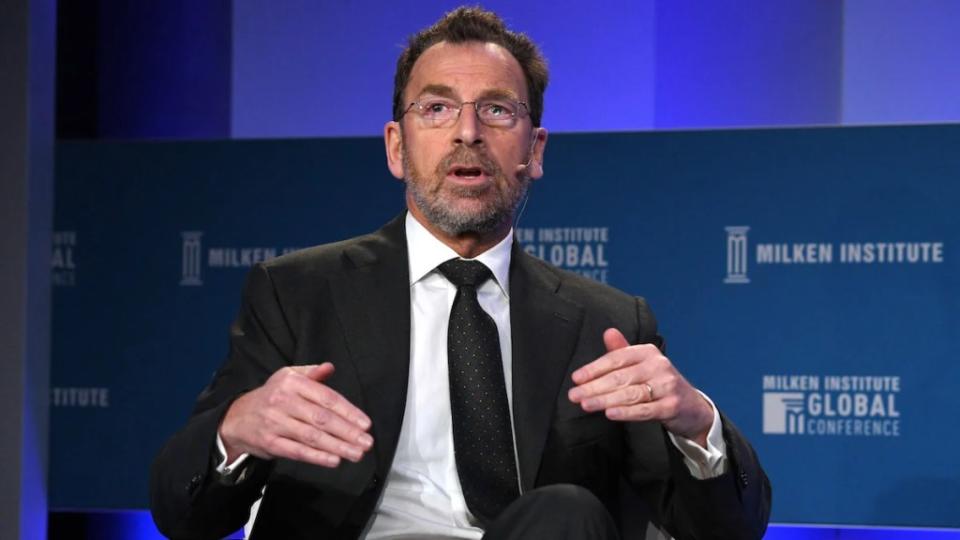Chaos at Paramount: An Uncertain Future Looms After Shari Redstone Pulls the Plug on Skydance | Analysis
The future of Paramount was thrown into chaos on Tuesday after Shari Redstone scuttled a long-planned sale of the struggling entertainment company to Skydance Media, leaving a major Hollywood studio bobbing in uncertain waters.
Why did she do it? An individual close to the deal said Redstone communicated her decision to cancel the pending sale to Skydance on Tuesday morning — even before Paramount’s special committee was meant to meet on the matter.
Redstone’s concerns about her own legal liability and a dispute over whether to give both voting and non-voting shareholders a consent vote played deciding roles in the deal’s failure to launch, three individuals told TheWrap.
“She’s a lunatic,” said one individual close to the deal in the heat of the moment, reflecting the anger that rippled through the teams that had worked for months toward a close.
The upshot at the close of business on Tuesday was that Redstone had made a mess of her plan to sell Paramount and preserve the legacy of her father, Sumner Redstone, the former chairman of both Viacom and CBS who built Paramount Global from a legacy studio into an entertainment major rivaling Disney and Universal Studios.
The end of the Skydance deal
The decision by Redstone, Paramount’s non-executive chairwoman and controlling shareholder through her holding company National Amusements Inc. (NAI), ended months-long negotiations with David Ellison’s company, Skydance.
Paramount and Skydance negotiators agreed to financial terms last week that would have paid Redstone $2.25 billion for her stake in National Amusements, which controls 77% of Paramount’s voting stock. Paramount’s independent special committee was set to receive an update on the progress of a potential transaction on Tuesday.
Redstone, who had been trying to build an indemnification plan to shield herself from potential shareholder lawsuits, decided she still wasn’t satisfied and communicated her desire to end the talks to Skydance before the committee met, two people familiar with the deal told TheWrap.
“She made the decision,” one person said. “She just wants the most money for herself.”
Redstone “had to take a little bit less than she thought in that deal because they moved money over to the Paramount shareholders,” a second person said. (Skydance previously revised its offer to inject more cash and give minority shareholders a premium sweetner and the option of cashing out at $15 per share.)

That person also noted that problems arose in the due diligence process. And two people noted that personal tension between Ellison and Redstone further contributed to the deal collapsing.
A third individual familiar with the negotiations said that Paramount’s independent special committee never officially recommended Skydance’s latest revised offer, contrary to previous reports. While both sides agreed to the economic terms, there were outstanding issues that they did not agree on. Most notably, Skydance would not agree to allow all shareholders a consent vote on the sale.
“Both the special committee and National Amusements wanted it to be part of the terms of the deal and Skydance did not,” the individual said.
The special committee confirmed in a statement Tuesday that it did not take a vote on the Skydance deal and had met for an update on the progress of the transaction. Subsequently, it was informed by National Amusements that the two parties weren’t in agreement and that they “didn’t anticipate a path forward” on the transaction.
Skydance was never the only bidder interested in Paramount. Private equity firm Apollo Global Management also teamed up with Sony Pictures Entertainment on a more lucrative $26 billion all-cash offer. And Allen Media Group founder Byron Allen placed a $30 billion bid including debt, though it was unclear how that would have been financed.
But Redstone stuck with Skydance, even as some of Paramount’s largest shareholders publicly decried the offer as favoring her own financial interests above theirs.
In the midst of negotiations, four Paramount board members opted to step down at the company’s annual meeting. Separately, longtime CEO Bob Bakish stepped down in April, leaving a three-headed Office of the CEO in charge. Paramount is currently facing $14.6 million in long-term debt, a credit downgrade to junk status, a declining linear television business and an unprofitable streaming business. Its stock is down 33% over the past year; it fell another 7.8% on Tuesday to close at $11.04.
Where Redstone goes from here
Now Redstone seems inclined to focus on either selling National Amusements or giving the Office of the CEO time to execute its long-term strategy rather than doing a deal for Paramount. Some analysts said Tuesday that they can understand why.
“A Skydance deal with Paramount raised a few eyebrows from the get-go,” Jamie Lumley, senior analyst at Third Bridge, said. “As it became increasingly clear that Skydance intended to sell off assets following a merger, it seems likely Shari Redstone wanted greater say over the ultimate home of the pieces of her media empire.”
Lumley added that the “convoluted nature” of the proposed merger might have spurred more legal challenges from Paramount’s common shareholders. The offer from Skydance, which was backed by a consortium of investors including RedBird Capital and KKR, involved Ellison acquiring National Amusements. In a second step, Skydance would have merged with Paramount to create a combined company.
Some shareholders expressed relief that Redstone decided to abandon the Skydance deal, while continuing to criticize her handling of Paramount’s sale. While the revised deal was better than the original for non-voting shareholders, “it was still sub-par and likely only worth $12.50 to $13 a share,” David Katz of Matrix Asset Advisors, a Paramount shareholder, said. Redstone and Paramount preferred shareholders “would have done well,” he said.
“Shari has shown her hand; she is solely out for herself,” Katz added.
New bidders
So far, two groups have shown interest in National Amusements.
“Baby Geniuses” producer Steven Paul has approached Redstone, an individual familiar with the matter told TheWrap. His bid is reportedly backed by a group of investors that includes John Paul DeJoria, the billionaire cofounder of Patrón tequila and Paul Mitchell hair care products, according to Bloomberg. Paul and DeJoria’s group, who are being advised by Rockefeller Capital Management, made an offer several weeks ago that is more than the $2.25 billion from Skydance but less than $3 billion, the outlet noted.

Separately, Bain Capital and Edgar Bronfman Jr., the former Warner Music Group CEO and chairman, are looking to offer between $2 billion and $2.5 billion for National Amusements, according to The Wall Street Journal. A formal bid from Bronfman would be subject to due diligence and approval from Bain’s own investment committee, the outlet reported.
One of the individuals familiar with negotiations said that selling NAI on its own is a “possibility” but emphasized that the expressions of interest from Paul and Bronfman Jr. are not as far along as the Skydance deal was.
A year to two years out “might be a radically different and better environment to sell the firm. This was a fire sale at the worst time,” Katz said. “There is new uncertainty in her selling National Amusements, to whom and what will their plan be. But in this case in all likelihood, the devil we don’t know is better than the devil we know.”
While Redstone mulls whether to explore a sale of National Amusements on its own, Paramount investors will be forced to consider the updated plan laid out at last week’s annual meeting by the senior executives comprising the Office of the CEO: Chris McCarthy (Showtime/ MTV Entertainment Studios and Paramount Media Networks), George Cheeks (CBS) and Brian Robbins (Paramount Pictures and Nickelodeon).
They have called for transforming Paramount’s still-unprofitable streaming business through strategic partnerships and licensing opportunities, trimming $500 million in costs and divesting assets to pay down debt.
On Tuesday, National Amusements expressed support for the Office of the CEO and the board “to explore opportunities to drive value creation for all Paramount shareholders.” It also said it was “grateful to Skydance for their months of work in pursuing this potential transaction and looks forward to the ongoing, successful production collaboration between Paramount and Skydance.”
The dance around Paramount has become exhausting — for Wall Street and the entertainment industry. And time is not on the company’s side. “Any plan, and any potential buyer of Paramount, will have to contend with a company whose mix of assets presents in many ways a challenged hand for navigating the shifting winds of media,” MoffettNathanson said in a research note.
Sharon Waxman contributed to this article.
The post Chaos at Paramount: An Uncertain Future Looms After Shari Redstone Pulls the Plug on Skydance | Analysis appeared first on TheWrap.

 Yahoo News
Yahoo News 
